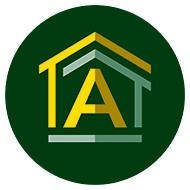
At Alexandra Primary school we recognise that the spiritual, moral, social and cultural element of children’s education is crucial to their development as an individual, allowing them to flourish. SMSC begins in Early Years and is the foundation to children's learning.
Through our aims and values, British Values, the wider curriculum, our Rights Respecting agenda and our ethos, we provide opportunities to develop SMSC. This is encompassed in Aspire, Perform, Succeed.
We believe that where there is a positive climate for learning, all that children encounter and are exposed to can contribute to children’s spiritual, moral, social and cultural development and develop their character.
SMSC is about the values, beliefs and attitudes that pupils are encouraged to develop. SMSC is fundamental in preparing children for their next stage in education and eventually the wider world as local, national and global citizens.
Alexandra Primary School therefore, aims to provide an education that affords pupils with opportunities to explore and develop their own values and beliefs, spiritual awareness, high standards of personal behaviour, a positive, caring attitude towards other people, an understanding of their social and cultural traditions and an appreciation of the diversity and richness of a range of cultures.
The children’s spiritual development is shown by their:
The children’s moral development is shown by their:
The children’s social development is shown by their:
The children’s cultural development is shown by their:
Through our Right Respecting agenda, we promote all of the articles with children. But in particular:
Article 12- Every child has the right to express their views, feelings and wishes in all matters affecting them, and to have their views considered and taken seriously.
Article 13 - Every child must be free to express their thoughts and opinions and to access all kinds of information, as long as it is within the law.
Article 14 –Every child has the right to think and believe what they want and practice their religion, as long as they are not stopping other people from enjoying their rights. Governments must respect the rights of parents to give their children information about this right.
Article 15 – Every child has the right to meet with other children and to enjoy groups and organisations, as long as this does not stop other people from enjoying their rights.
Article 28 – Every child has the right to an education.
Article 29 – Education must develop every child’s personality, talents and abilities to the full. It must encourage the children’s respect for human rights, as well as respect for their parents, their own and other cultures, and the environment.
Article 30 - Every child has the right to learn and use the language, customs and religion of their family, whether or not these are shared by the majority of the people in the country where they live.
Article 31 – Every child has the right to relax, play and take part in a wide range of cultural and artistic activities.